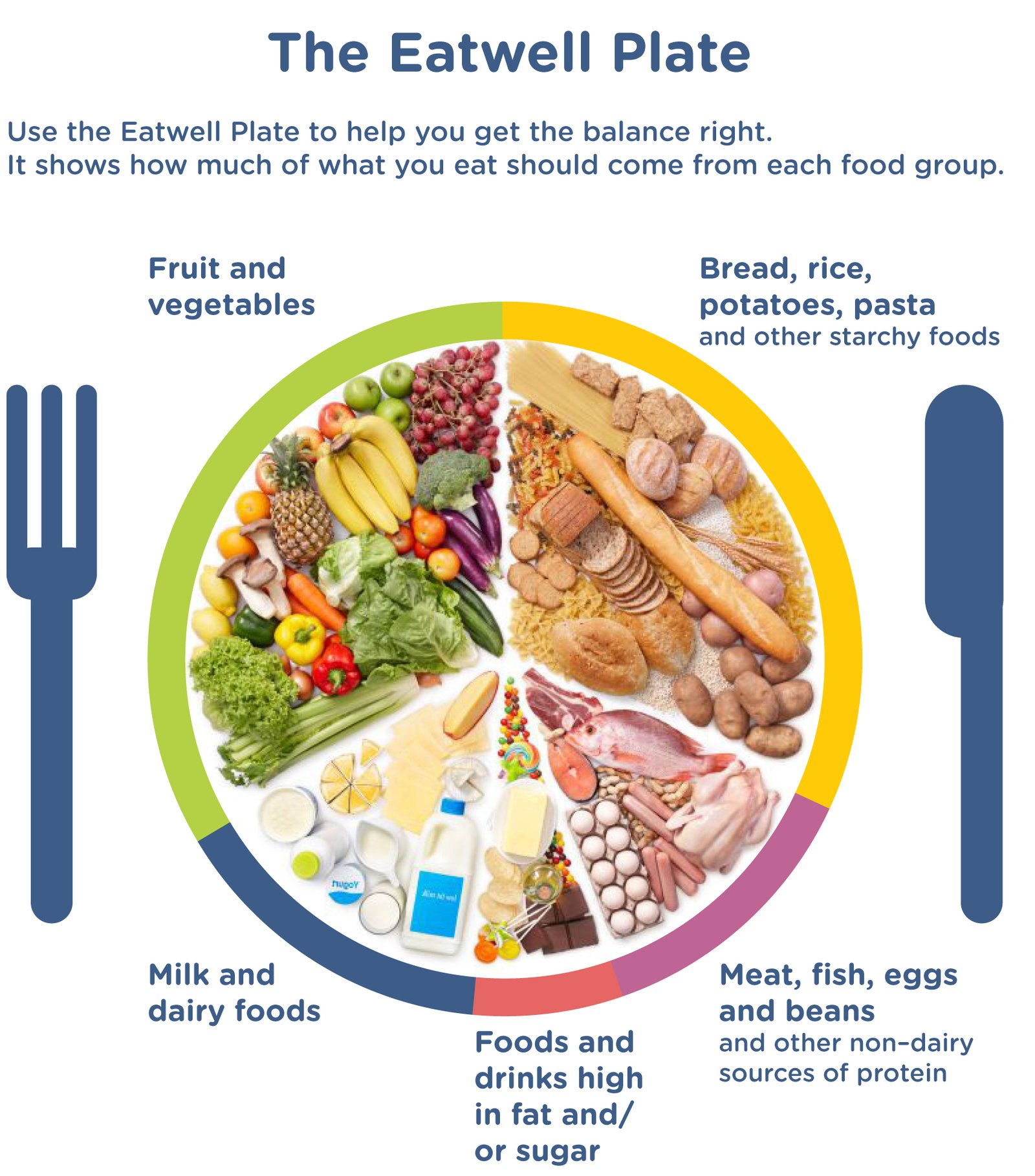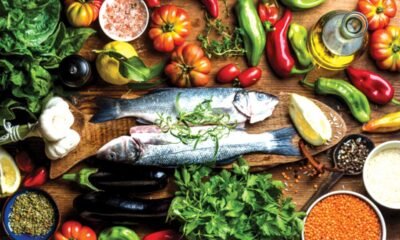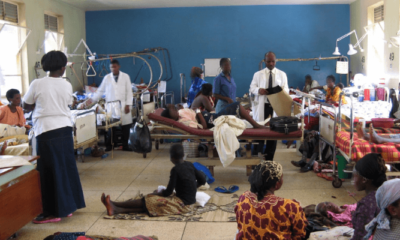Lifestyle
Cheap Foods: Millions Of Nigerians At Risk Of Obesity, Cancer, Dementia..

By Cami Ezenwa
Millions of Nigerians are now at the risk of debilitating diseases like Cancer, Dementia and obesity amongst others because of overconsumption of cheap foods.
The Eagle investigations shows that the prevailing economic challenge, especially in the last six months, have forced a change of eating lifestyle amongst most Nigerians exposing them to grave risks.
The risk is occasioned by the sheer lack of essential body-building nutrients derivable from food ingredients like protein, minerals, calcium etc in favour of carbohydrates and fat, but which are usually lacking in the cheap foods they now prefer.
Giving vent to this, is a startling revelation in a recent publications of the National Bureau of Statistics which shows decrease in the quality of food consumed by Nigerians.
Its data on the Nigeria, Cost of Healthy Diet (CoHD) reveals a steady increase over the last six months beginning from January 2024, i
According to it, in June 2024, the Cost Of Healthy Diets (CoHD) was 45% higher than it was in January 2024 (N858). It was also 19% higher than the cost in May 2024 (N1,041).
The main drivers of this increase in CoHD are Vegetables, Legumes, Nuts and Seeds, and Starchy Staples, food substances which constitute healthy diets.
In a situation where average families and households are scrapping to feed, quality consideration has taken a long back seat for cheap foods, our investigation shows.
A number of Nigerians interacted with in Lagos responded casually to our correspondent’s questions, affirming that they were no longer particular about quality as they were, about just anything to hold the body.
READ ALSO: Premature Ejaculation: These 7 Foods Will Bail You Out
From the NBS data, while premium nutrient-based foods have received impressed increase in price, starchy staples on the other hand, saw the smallest increase in price month-on-month.
This means that even with concerns in consuming them, starchy staples still remain most affordable by Nigerians.

Providing education on the Cost of a Healthy Diet (CoHD), the NBS said it is the least expensive combination of locally available items that meets globally consistent food-based dietary guidelines.
“The National average Cost of a Healthy Diet was N1,241 in June 2024. This is 19.2% higher than the amount recorded in the previous month (May 2024, was N1,041).
“In June 2024, the average CoHD was highest in the South West at N1,545 per adult per day, compared to N956 per adult per day in North West”, the report said, adding that In recent months, the CoHD has risen faster than general inflation and food inflation.
Thus, whereas the CoHD is the minimum cost of foods needed to meet international recommendations defined in the Healthy Diet Basket (HDB), the economic challenge in the country has continued to deny millions of nigerians access to them.
This, experts warn have grave implications for the masses of the country.
Both the World Health Organisation (WHO) and other health organisations, underscore the importance of healthy diets while on the other hand, spelling out disease conditions that result from lack of access to them.
READ ALSO: Solutions To Burning Sensations In Your Genitals, Other Health issues Here
The WHO for example says a good diet is one that include fruit, vegetables, legumes (e.g. lentils and beans), nuts and whole grains (e.g. unprocessed maize, millet, oats, wheat and brown rice).
In other words, an adult should have at least 400 g (i.e. five portions) of fruit and vegetables per day (2), excluding potatoes, sweet potatoes, cassava and other starchy roots.
Prices of virtually all the above, have, over the last six months hit the rooftops This is a situation where there should be less than 10% of total energy intake from free sugars (2, 7), which is equivalent to 50 g (or about 12 level teaspoons) for a person of healthy body weight consuming about 2000 calories per day, but ideally is less than 5% of total energy intake for additional health benefits (7).
Free sugars are all sugars added to foods or drinks by the manufacturer, cook or consumer, as well as sugars naturally present in honey, syrups, fruit juices and fruit juice concentrates, the agency explains
For the NHS UK, a healthy diet is one that contains at least 5 portions of a variety of fruit and vegetables every day, and that while base meals on higher fibre starchy foods like potatoes, bread, rice or pasta, have some dairy or dairy alternatives, but that some beans, pulses, fish, eggs, meat and other protein should feature prominently in the diet.
It is arguable, how many households still conveniently provide the above on the menus daily.
READ ALSO: Foods That Cause Miscarriage In Early Pregnancy
Generally, the economic challenge has made daily survival difficult with average households just eating anything their means could afford.
Beans which is a source of protein has since risen in price beyond the cost of rice. The popular derica cup measure of beans now sells at between N2, 000 and N2, 500, compared to rice (majorly carbohydrate and starch) which is still available at between N1, 200 N1,400.
This has inevitably led to overconsumption of carbohydrates such as many households in Nigeria have been confined to, with all its grave implications.
While the HNS argues that fruit and vegetables are a good source of vitamins and minerals and fibre, and should make up just over a third of the food eaten each day, the price implication is much for average Nigerians, price intelligence has shown; cheap foods are rather in preference.
Experts fear that the result of this would be increases in diseases and conditions such obesity, dementia, cancer, fatigue, insomnia, hypertension and type 2 diabetes amongst many others.



























